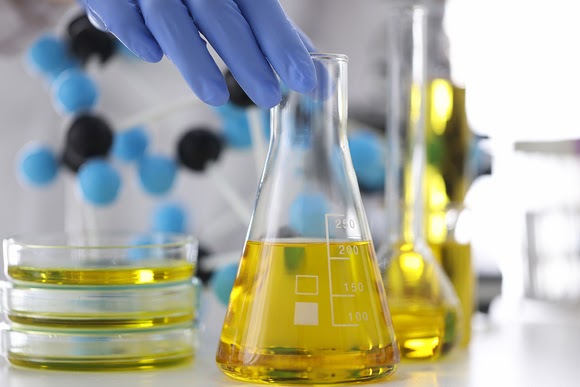What is it?
Palm oil is a product that is obtained from the pulp of the palm fruit. Just like coconut oil, it belongs to the group of vegetable oils of tropical origin. It is produced mainly in Indonesia and Malaysia – about 95%. Also a small amount is made in Thailand, Nigeria and Colombia.
Like other vegetable oils such as sunflower or olive oil, palm oil consists of saturated and unsaturated fatty acids. The main difference is their percentage ratio. The oil’s consistency also depends on it: whether it is liquid or semi-solid.
Our body needs sufficient amounts of both fatty acids because they are sources of energy for the cells. Unsaturated ones help to prevent the development of various diseases, participate in immunity strengthening. Saturated ones provide the body with cellular building material. But doctors warn against consuming too much saturated fatty acids. Olive and sunflower oils have no more than 20%, palm oil has up to 50%. For comparison, in butter it is about 70%.
What accounts for the popularity of palm oil?
According to the U.S. Department of Agriculture, already in 2016 the global production of refined palm oil exceeded the production of other vegetable oils. Palm oil continues to hold the lead in the market. This situation is due to the unique physical and chemical property of palm oil, which provides the ability to remain in a solid and semi-solid state at room temperature, unlike most vegetable oils.
As a rule, palm oil can be seen in the composition of confectionery and bakery products, where in the conditions of home cooking would add the usual butter. The question is – why then not use it in mass production as well? The reason is simple – it is expensive. In addition, the shelf life of products with butter would be much shorter.
In the XIX century came up with a substitute for butter, you know it well – it’s margarine. At that time it was produced mainly from sunflower oil, which in the process of hydrogenation formed trans fats. Over time, science has proven their dangerous effects on the body. Numerous studies have shown that trans fats increase the risk of coronary heart disease and increase systemic inflammation of the whole body.
That is why the technologists faced the task of obtaining margarine without hydrogenation. In order to do that they had to find a raw material with a high content of saturated fatty acids. But it did not need to be solidified. Palm oil was chosen. In fact, it became a budget alternative to butter, only with a lower percentage of saturated fatty acids.
Can glycidyl esters cause cancer?
At high temperatures, glycidyl esters of fatty acids, a byproduct of the refining process, can appear in vegetable oils. In the European Union, the standard for glycidyl esters in oils that are sold in stores and used as ingredients in food products is set at no more than 1 mg/kg.
The main thing that carcinogens scare people with is the myth that they cause cancer. Why is this a myth?
If any vegetable oil is heated above 230°C, glycidyl ethers are released. It has been suggested that in humans they form a substance called glycidol, which the International Agency for Research on Cancer (IARC) has recognized as “probably carcinogenic to humans.” For clarification, any red meat (pork, lamb and beef) is in this same risk group.
However, there is no work yet in scientific research that proves the link between glycidyl esters and glycidol or that confirms the link between glycidyl esters and the development of cancer in humans. This is just speculation.
Where did the myths about the harms of palm oil come from?
There is another myth that says that palm oil is hard for the human body to digest. This is not true. The fact is that palm oil, like any vegetable oil, breaks down in the intestine into fatty acids and glycerol when digested. A person with a healthy digestion has no problem digesting both of these substances.
Such myths are the result of people who have not ascertained the facts before writing about them. As a rule, biased information is spread by journalists in pursuit of sensationalism, as well as by eco-activists who fight for the reduction of cultivation areas for palm trees and talk about the connection between the spread of this crop and interference with wildlife.
What good things can be found in palm oil?
In 2019, experts published a report that mentions articles about the benefits of palm oil. Unrefined palm oil (also called red oil) contains more than 4% oleic acid, the product contains many vitamins A and E, which are necessary for the formation of the bone system, teeth and growth of new cells. In this sense, the oil surpasses even fish oil in the number of useful biologically active substances.
During the refining process, palm oil, like all vegetable oils, loses some of its vitamins. Accordingly, the product does not come to us in the same form as it did in its homeland. It cannot be called a superfood, but it does not become significantly more harmful. However, this refining process is similar to the refining of sunflower oil: its task is to clean the oil from impurities.
Conclusion
There is no proven evidence that palm oil is harmful to science at this time. Another thing is that “palm” is added to confectionery and bakery products, which themselves cannot be called healthy, at least due to the use of large amounts of flour and sugar. Overconsumption of any product is bad for your health, and palm oil is no exception. Any expert will tell you just to keep things in moderation – it’s much safer than inventing myths about products and trapping yourself in your own delusions.
